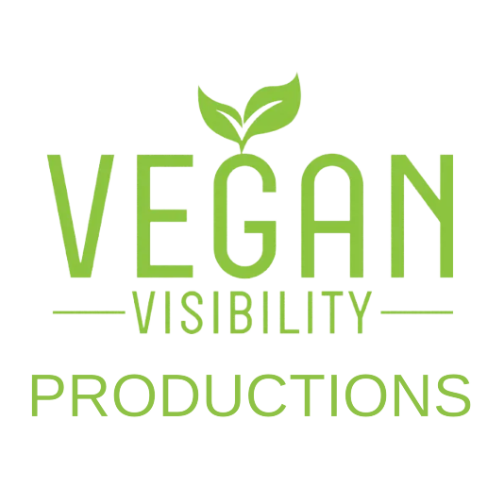 I can’t count the number of times I’ve read posts on social media where someone attacks vegans by labeling them as “radical” when, in fact, they are simply choosing not to consume animal or dairy products. This mischaracterization ignores the core principles of compassion for animals, environmental concern, and personal health that guide most vegans.
I can’t count the number of times I’ve read posts on social media where someone attacks vegans by labeling them as “radical” when, in fact, they are simply choosing not to consume animal or dairy products. This mischaracterization ignores the core principles of compassion for animals, environmental concern, and personal health that guide most vegans.
Additionally, vegans are often unfairly labeled as unhealthy based on isolated examples of individuals who, regardless of their dietary preferences, live unhealthy lifestyles. This stereotype disregards the numerous studies showing that well-planned vegan diets can be incredibly nutritious and beneficial for overall health.
In reality, veganism is not just a diet but a lifestyle, though many people mistakenly reduce it to merely a dietary choice.
While every movement has its share of outspoken advocates, painting all vegans with the same brush due to the actions of a few is not only unfair but also distracts from the legitimate and laudable reasons behind their choices.
Compassion for Animals: A Core Ethical Stance
At the heart of veganism is a profound compassion for animals. Vegans reject the commodification of sentient beings, advocating instead for their right to live free from exploitation and harm. This ethical stance is grounded in empathy and a recognition of the intrinsic value of all living creatures. Far from being radical, this perspective aligns with widely accepted moral principles. Many non-vegans, too, are disturbed by the cruelty inherent in factory farming but may feel powerless to make a change. Vegans simply take the logical step of aligning their actions with their ethical beliefs, striving to reduce animal suffering as much as possible.
right to live free from exploitation and harm. This ethical stance is grounded in empathy and a recognition of the intrinsic value of all living creatures. Far from being radical, this perspective aligns with widely accepted moral principles. Many non-vegans, too, are disturbed by the cruelty inherent in factory farming but may feel powerless to make a change. Vegans simply take the logical step of aligning their actions with their ethical beliefs, striving to reduce animal suffering as much as possible.
Environmental Stewardship: A Pragmatic Approach
The environmental benefits of a vegan diet are well-documented. Livestock farming is a significant contributor to greenhouse gas emissions, deforestation, and water pollution. By choosing plant-based foods, vegans significantly reduce their carbon footprint, conserve water, and help preserve biodiversity. This commitment to environmental stewardship is anything but extreme; it is a practical and necessary response to the pressing issue of climate change. Scientists and environmentalists around the world advocate for reduced meat consumption as a crucial part of mitigating environmental damage. In this context, veganism appears not as a radical choice but as a responsible and informed one.
Health Benefits: A Personal Commitment
 Many people adopt a vegan diet for its health benefits. Keep in mind, not all vegan foods are healthy. Ultra processed, packaged foods, likely are NOT healthy. However, 100% whole food, plant based choices are not only vegan they are healthy. Research indicates that plant-based diets can lower the risk of chronic diseases such as heart disease, diabetes, and certain cancers. Vegans, who subscribe to a plant based diet, often report increased energy levels, improved digestion, and overall better health outcomes. Choosing to eat in a way that promotes one’s own well-being is a personal decision rooted in self-care and informed by scientific evidence. It is hardly radical to prioritize health and longevity through dietary choices.
Many people adopt a vegan diet for its health benefits. Keep in mind, not all vegan foods are healthy. Ultra processed, packaged foods, likely are NOT healthy. However, 100% whole food, plant based choices are not only vegan they are healthy. Research indicates that plant-based diets can lower the risk of chronic diseases such as heart disease, diabetes, and certain cancers. Vegans, who subscribe to a plant based diet, often report increased energy levels, improved digestion, and overall better health outcomes. Choosing to eat in a way that promotes one’s own well-being is a personal decision rooted in self-care and informed by scientific evidence. It is hardly radical to prioritize health and longevity through dietary choices.
The Stereotype Problem
Like any group, vegans are diverse and encompass a wide range of personalities and approaches. Yes, some vegans are vocal and passionate about their beliefs, sometimes in ways that can be perceived as confrontational. However, this is true of any movement. Activism, by its nature, attracts individuals who are driven to effect change, often in the face of societal inertia. To focus solely on the most outspoken individuals while ignoring the vast majority of vegans who quietly live their values is to succumb to a stereotype that hinders understanding and dialogue.
A Call for Understanding
Labeling vegans as radicals because of their ethical, environmental, or health choices is a simplistic and dismissive tactic. It prevents meaningful conversation and mutual understanding. In a time when our world faces significant ethical, environmental, and health challenges, the vegan movement offers thoughtful and practical solutions. Rather than dismissing vegans as extremists, it is more productive to engage with their ideas and consider the broader implications of their lifestyle choices.
meaningful conversation and mutual understanding. In a time when our world faces significant ethical, environmental, and health challenges, the vegan movement offers thoughtful and practical solutions. Rather than dismissing vegans as extremists, it is more productive to engage with their ideas and consider the broader implications of their lifestyle choices.
The decision to adopt a vegan lifestyle is a compassionate, pragmatic, and health-conscious choice. It is motivated by a desire to reduce suffering, protect the planet, and promote personal well-being. These are not radical goals but rather thoughtful responses to some of the most pressing issues of our time. Understanding this can foster a more inclusive and respectful dialogue about how we can collectively create a better world for all living beings.
About the Author
Kathleen Gage is a highly experienced business consultant, keynote speaker, author, and marketing strategist. She’s the founder of Vegan Visibility and co-founder of Vegan Visibility Productions. Kathleen is known for her resilience in navigating economic challenges and her commitment to advocating for a sustainable, compassionate world. She consults with vegan plant-based businesses, hosts popular podcasts, authors books, and organizes the virtual summits, book launches, and digital product launches. Kathleen resides in Central Oregon, where she indulges her passion for outdoor activities and cares for rescued animals on her property.
Learn more about Kathleen and her involvement in the vegan niche and market at www.VeganVisibilityProductions.com


